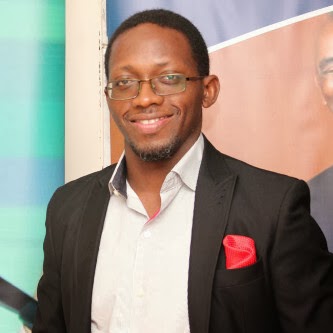A
popular French proverb attributed to the novelist, writer and critic; Jean-Baptiste Alphonse Karr says "plus ça change, plus c'est
la même chose" translated to mean " the more things
change, the more they remain the same" and that depicts the summation of
our challenges as a nation.
On
the 28th March 2016, it will be exactly one year since our country men and
women from across the length and breadth of this nation overwhelmingly voted to
what clearly seemed then a better alternative to the status quo. An alternative
to the egregious insecurity, debilitating poverty, wanton corruption, crippled
infrastructure, shameless prebandalism and a dearth of all sense of logic,
reason and sanity in government and governance.
Nigerians were presented with
clearly the most efficient and well oiled political campaign by an opposition
in Nigeria's history. On social media and on the streets of all the major
cities across our lands, declaratory advertisement postulated the oncoming
change as the only possible solution for Nigeria's redemption. Add to this well
oiled campaign machinery, inflammatory comments made by politicians vying for
elective office and the haunting prediction that 2015 could be the
year Nigerian would break up, actions and predictions that filled
Churches, Mosques and prayer houses with worshipers supplicating for peace and
foreign missions launching a no violence campaign as well as ensuring that
candidates signed peace treaties.
Thankfully
and in answered prayers for many, the election were adjudged relatively free,
fair and credible by the International community. A sitting president was
removed from office by the power of the majority in democratic elections. The
doomsday predictions were averted and we as a people were ushered in the era of
change.
The
question many ask almost a year on is, What really has changed?
The
reality is that the poor are still poor, the richer are still rich and inspite of the 'war on corruption', there are
still corrupt politicians littering our political landscape; from the hallowed
chambers of our state and national assembly's to the corridors of power in our
nations' capital. Cities remained darkened by non-existent power supply and our
cars litter the roads in traffic grid-lock as the citizens spend countless
hours in filling stations waiting to buy petroleum products.
Our brothers and
sisters, fathers and mothers continued to be murdered, raped, dismembered and
their homes and communities pillaged by marauding Fulani herdsmen, our cities
in the north-east live displaced from their homes in fear despite swathes of
territories reclaimed by our military; remain in constant fear of bombings and
pillaging by the dreaded and monstrosity that is the Boko Haram sect. Our unity
is being fractured by returnee citizens
inflaming a region while seeking to resurrect the ghost of a civil war
we would rather forget, while millions of Nigerians remain more than ever
economically dis-empowered.
Our local currency the Naira plunging on a free fall
into a limbo between what exists on the so named parallel market available to
businessmen and entrepreneurs and the government regulated price accessible to
the wealthy few in the corridors of power and least we forget; our Chibok girls
have still not been found without trace or hope!
As
Nigerians, we tend to find comedic relief in even the most dire and obnoxious
situations and this ability to see positives has clearly kept us away from the
boundaries of desperation and insanity but does that make it tenable? Perhaps
we may commend the many foreign trips and bilateral relations signed. From
agreements on remitting corrupt proceeds and emboldening security to climate
change and nuclear summits as well as the visits by foreign heads of
governments to Nigeria.
President Buhari has clearly decided to take a lead on
rebuilding Nigeria's foreign image and while this may be commendable, the
effects of degrading ordinary Nigerians at forums outside the country negate
the possible benefits making the expected successes faint, distant images in
the mind of many Nigerians. With a focus on constant media engagement, without
the balance of articulated information on the direction of the Nigerian
economy, the common reality remains different from the statements of progress,
of development or the change millions voted.
While
no one can argue with the realities of the fall in oil revenue, no one can
contest the repeated warnings from economic pundits on the need to adapt to the
falling prices by diversifying the economy.
It would seem then that while the
current government; like an army willing to take a fortified city, prepared for
the siege but not for what it would find or how it would govern with the
promises it made to the electorate.
Even
as the patience of the electorate grow thinner waiting for the change promised,
it is time to move away from blaming past government administrations whether in
the past 16 or 56 years; and face squarely the challenges on ground with mutual
respect for Nigerians in reference and expressions, respect for the rule of law
and provisions of decent jobs, constant electricity, qualitative education,
entrepreneurial developments and economic growth.
As no nation on earth will
come to our aid without their interests being duly served and its wealth and
dominance entrenched; Nigeria, Nigerians and our government must work with
openness, belief and forthrightness to achieve the promised change for unless
we do these, we would have wasted another mercurial chance to fulfill our
potential as a great nation.





No comments:
Post a Comment